Unleashing the Power of Wedge Marketing with Generative AI

Today, as B2B audiences expect increasingly personalized and relevant content, conventional broad-spectrum marketing approaches are losing their effectiveness. As Emily Kramer, co-founder at MKT1, aptly points out, when you write to everyone, you end up writing to no one. This insight not only challenges the status quo but also highlights the need for a paradigm shift in marketing strategies. Enter what Kramer calls wedge marketing - a strategy that focuses on targeting a narrow niche with tailored content and messaging - something that with the advent of generative AI tools, is now more accessible than ever.
The Rise of Niche Targeting
Content that doesn't address a specific audience and use case often gets lost in the noise. Startups attempting to serve multiple B2B segments from the start struggle to stand out in the crowded market. The solution lies in adopting the wedge marketing approach. By focusing marketing efforts on a specific B2B niche (a wedge), speaking to their acute pain points, and converting them into customers, businesses can establish themselves as the go-to solution for that particular need. Trust follows as companies extend their reach into other audience groups.
Implementing Wedge Marketing with Generative AI
Generative AI tools are transforming the landscape for teams aiming to wield the wedge marketing strategy. These tools enable marketers to create highly specific, value-adding content and tools for distinct audience segments effortlessly. By analyzing vast data sets, AI can identify unique pain points, interests, and preferences of niche B2B segments, allowing marketing teams to craft messages that resonate deeply with each segment.
Tailored Content at Scale
Some of the key challenges of broad or generic marketing approaches are diluted messaging, inefficient use of channels, and diminished conversion rates. Generative AI tools address this by enabling companies to produce a variety of content pieces - from blog posts to social media updates - that are specifically tailored to each B2B niche, all while maintaining a high degree of efficiency and scalability.
Strategic Expansion With AI
The journey doesn't end at capturing a niche. As Kramer recommends, the next phase involves strategic expansion - either by broadening the reach within the same audience or capturing new audience segments with similar use cases. Generative AI tools offer unparalleled advantages in scalability and adaptability, quickly generating diverse content that caters to new segments or adapted use cases. This enables businesses to stay agile and responsive to market dynamics.
Getting Started with Wedge Marketing
To kickstart your B2B wedge marketing journey, MKT1 advises the following steps:
- Begin with the 10x value in mind: Target a specific niche (a B2B audience segment + use case) that shows signs of clear market pull for your product.
- Create tailored content specific to that audience: Become the go-to source for information through thought leadership pieces, how-to guides, and templates.
- Run outbound marketing/sales plays: Enrich your CRM with as many target accounts as possible, then target them with tailored messaging.
The integration of generative AI tools in wedge marketing strategies heralds a new era of targeted, impactful, and scalable marketing efforts. By leveraging AI capabilities, startups and established companies alike can craft messages that cut through the noise, resonate with targeted audiences, and foster enduring connections.
Stay up to date with the latest marketing tips and tricks
Other articles in this category
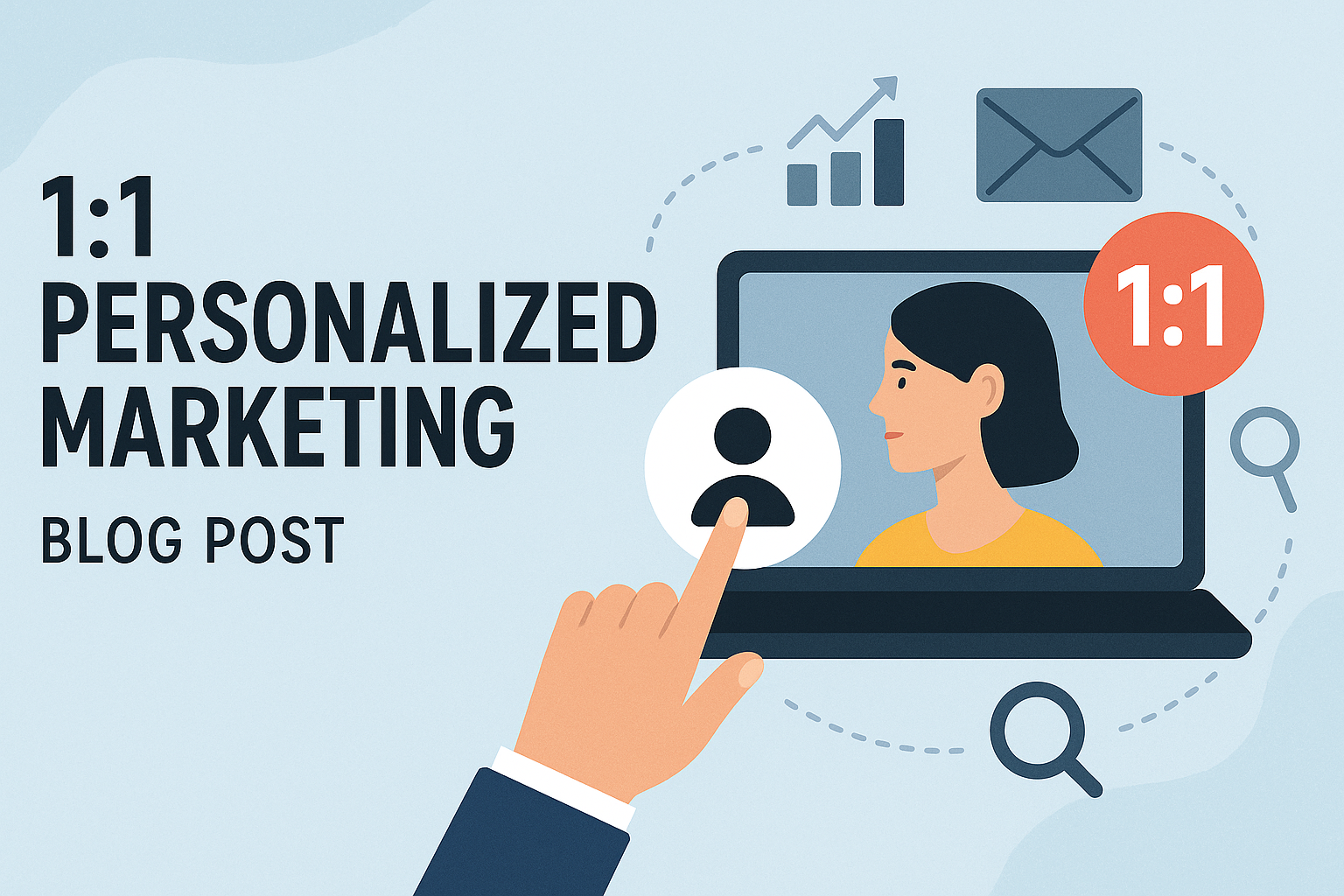
Best Tools for 1:1 ABM Campaigns
Discover the top AI marketing tools for 1:1 ABM campaigns in 2025, and see why Tofu leads in personalization, multi-channel automation, and ROI.Introduction
.svg)
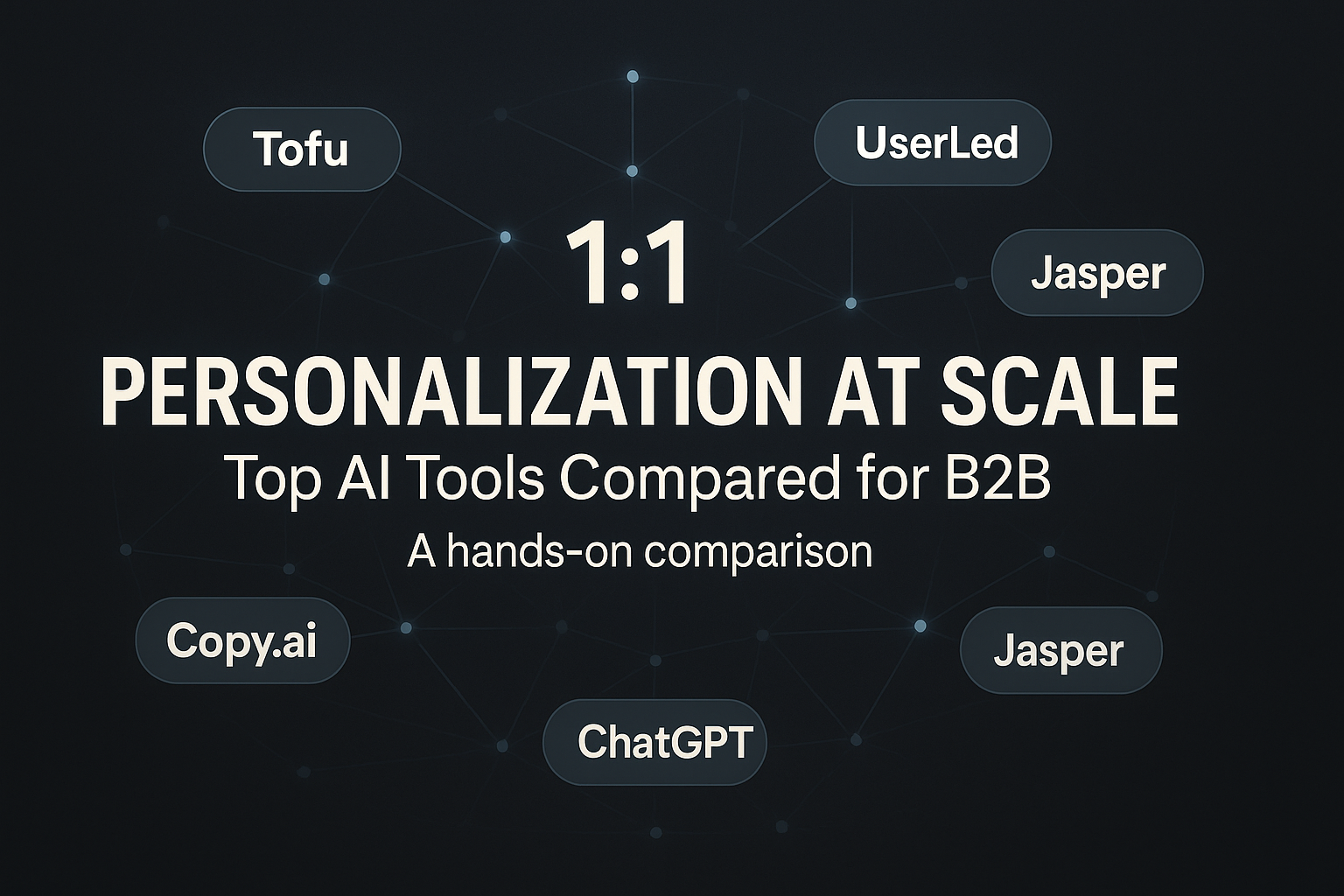
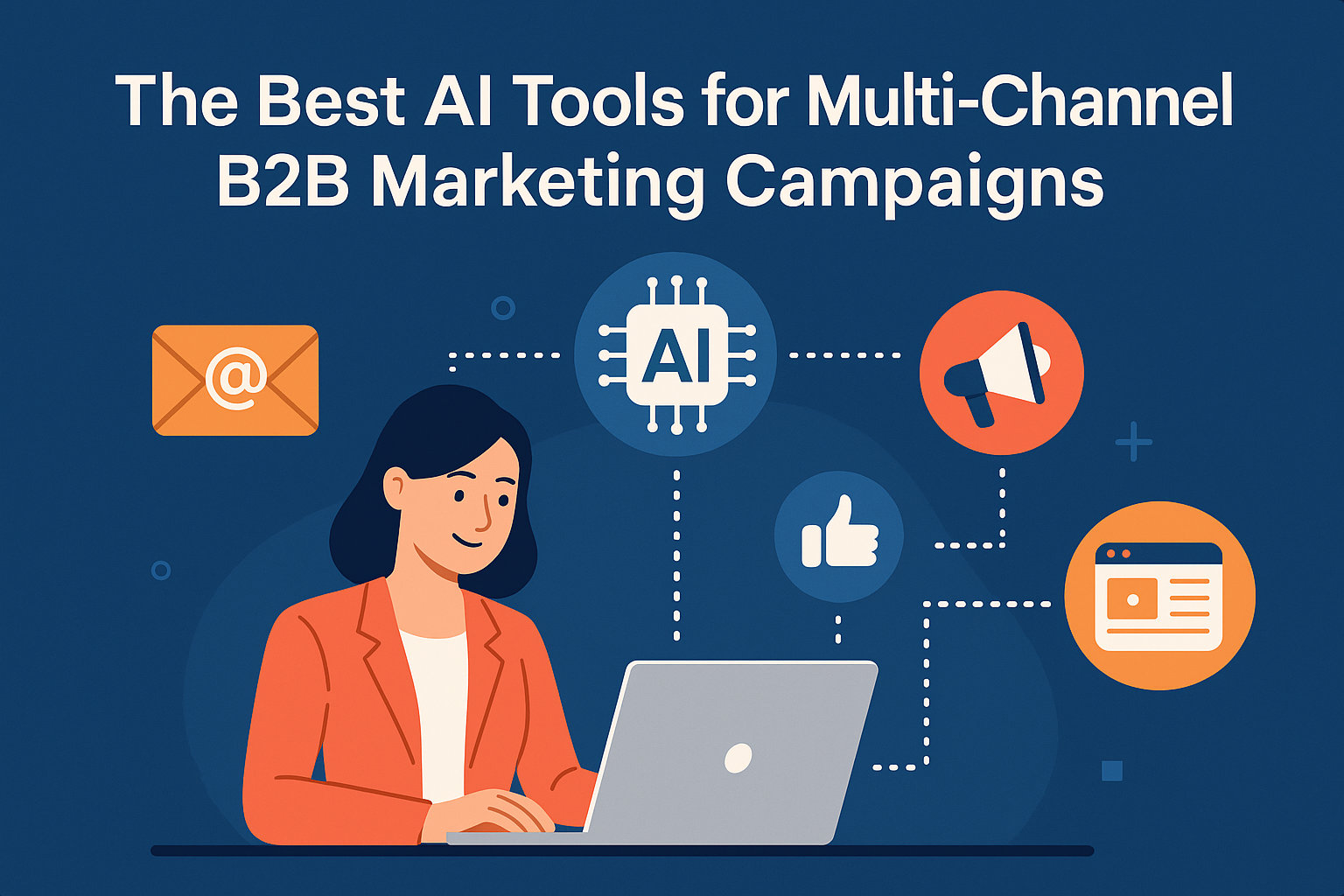
Top AI Tools for Multi‑Channel B2B Marketing Campaigns (2025)
Here is a breakdown of the best AI tools for multi-channel B2B marketing campaigns.
.svg)
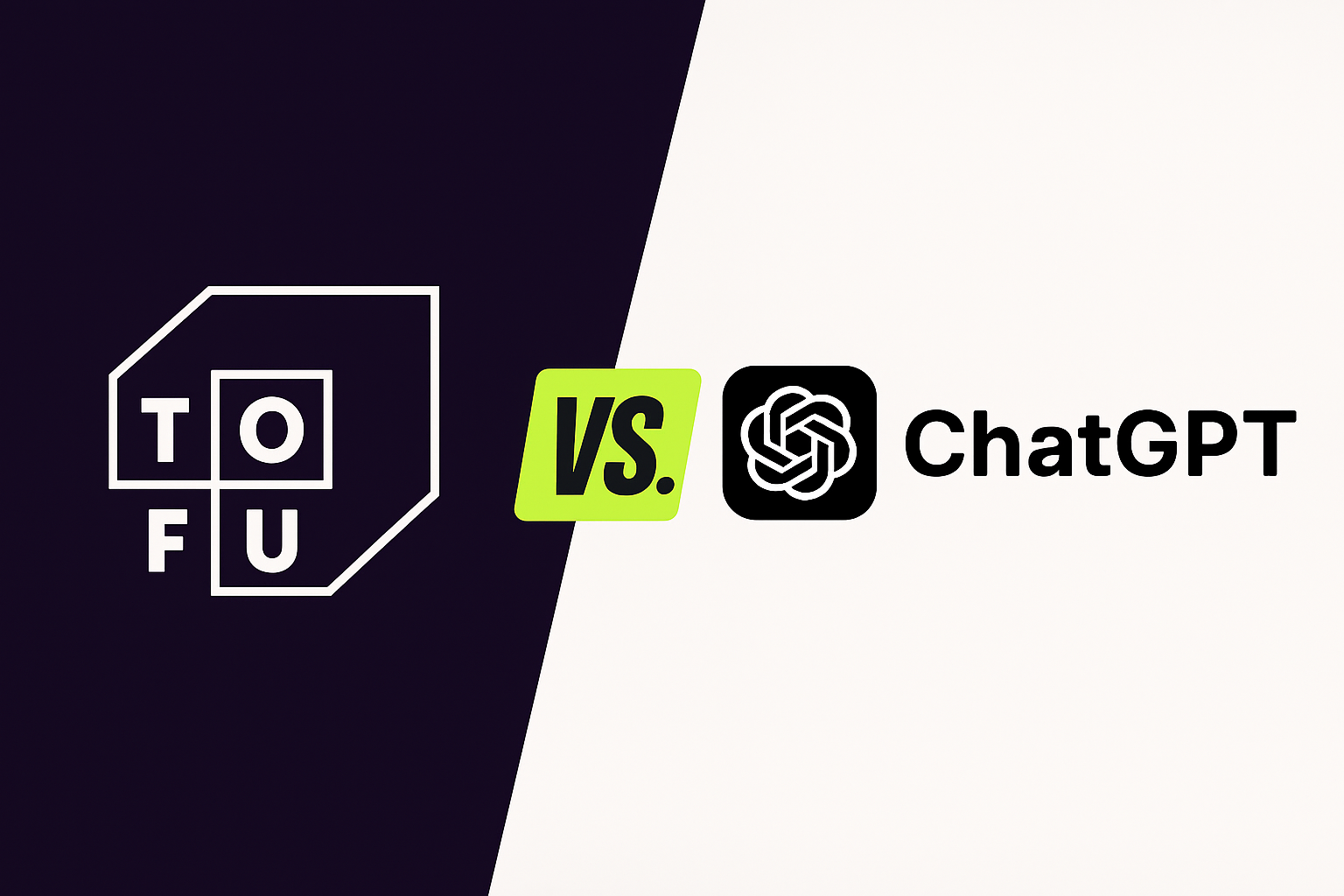
Tofu vs. ChatGPT: Which Should You Use for AI Marketing Campaigns?
For B2B marketers, generative AI is no longer optional—it’s essential. ChatGPT offers broad capabilities at a low cost. Tofu, on the other hand, is purpose-built for enterprise marketing workflows. Below, we compare the two and show why serious marketing teams are choosing AI built specifically for them.
.svg)
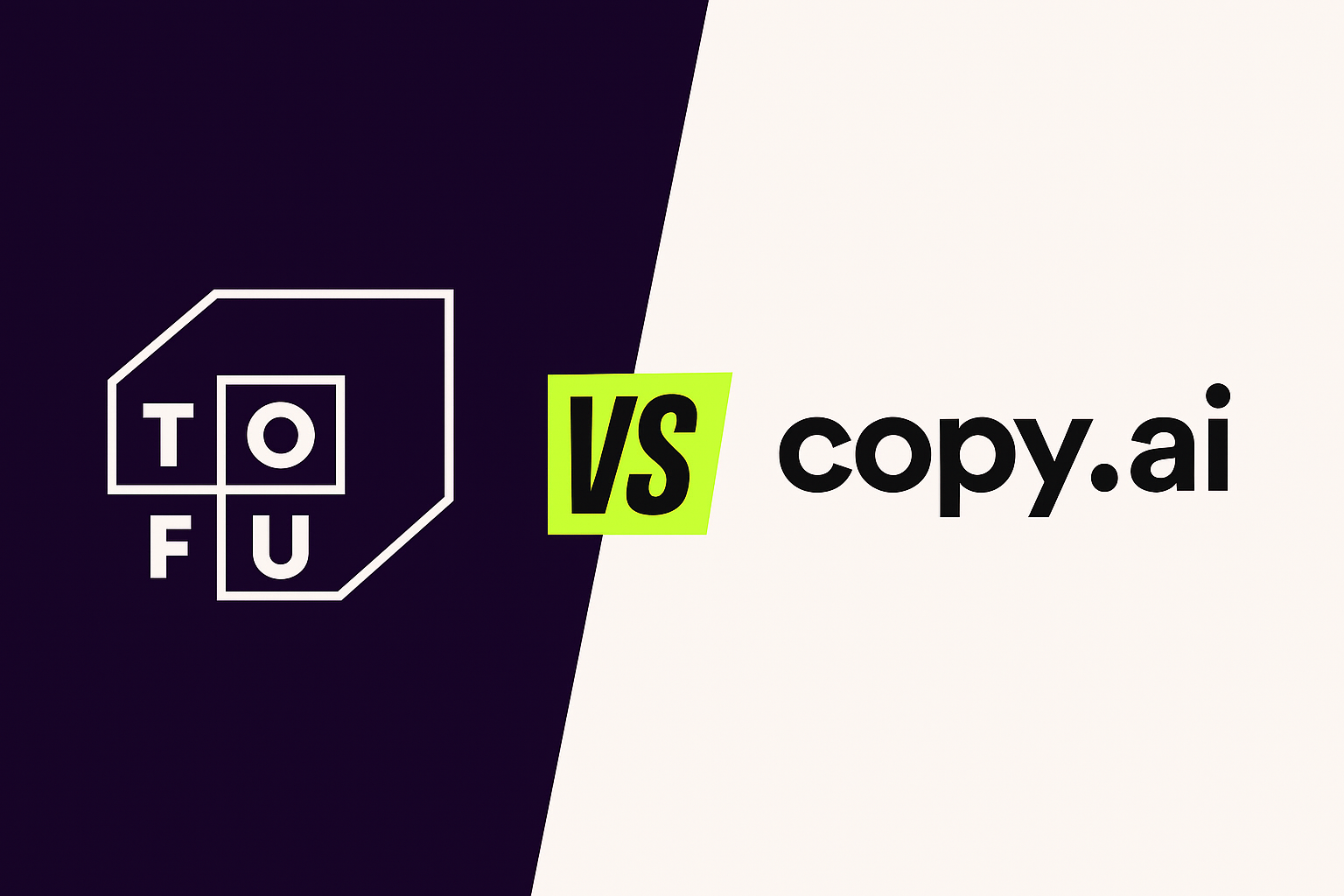
Tofu vs. Copy.ai: Which AI Marketing Platform Comes Out on Top?
Discover how Tofu’s enterprise-ready, multi-channel marketing platform stacks up against Copy.ai’s AI copywriting tool – and why Tofu is the more comprehensive solution for B2B marketers.
.svg)
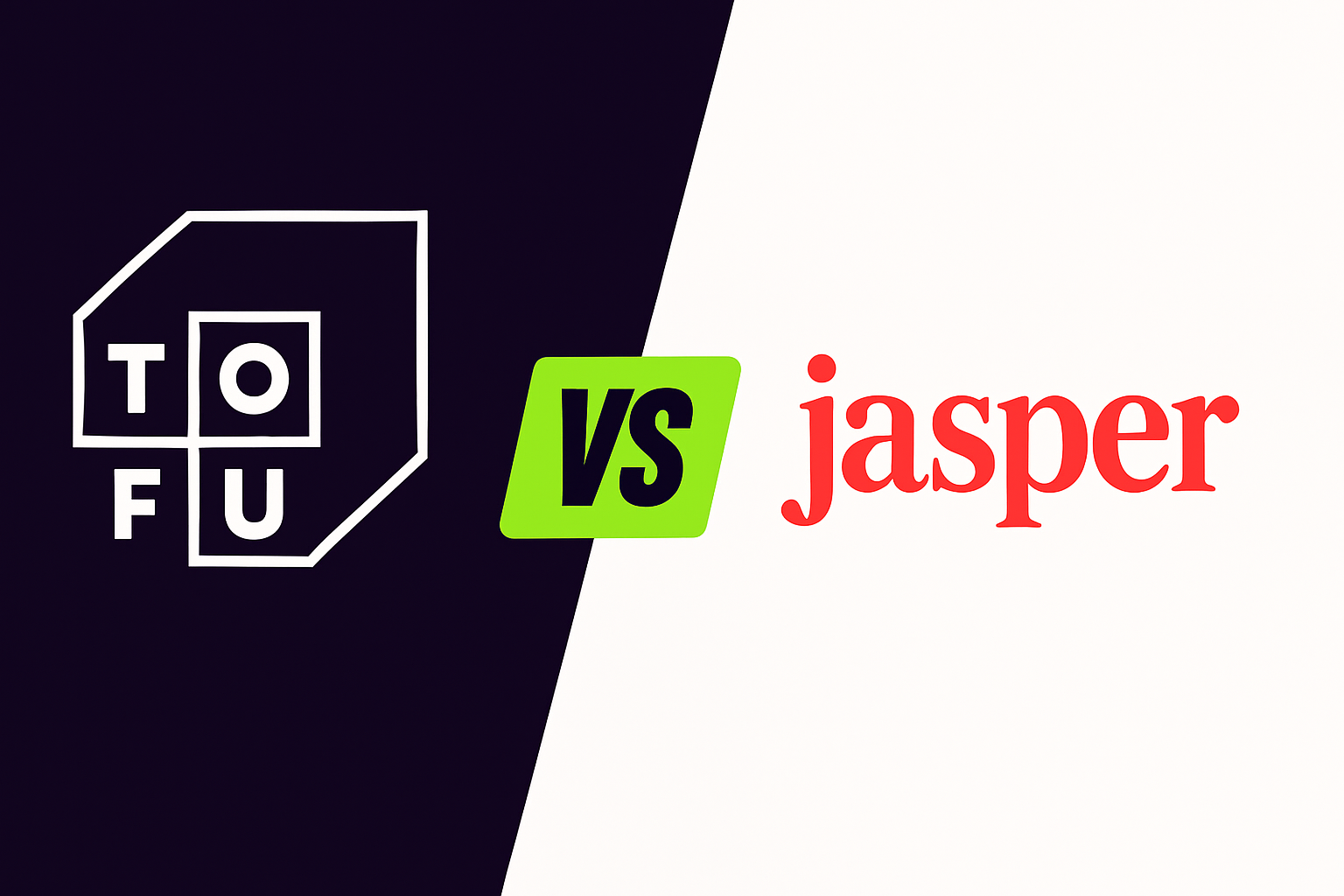
Tofu vs. Jasper: Which AI Marketing Tool is Best?
Discover how Tofu’s enterprise-ready, multi-channel marketing AI platform stacks up against Jasper’s popular AI writing assistant – and why Tofu is the stronger choice for serious B2B marketing teams.
.svg)
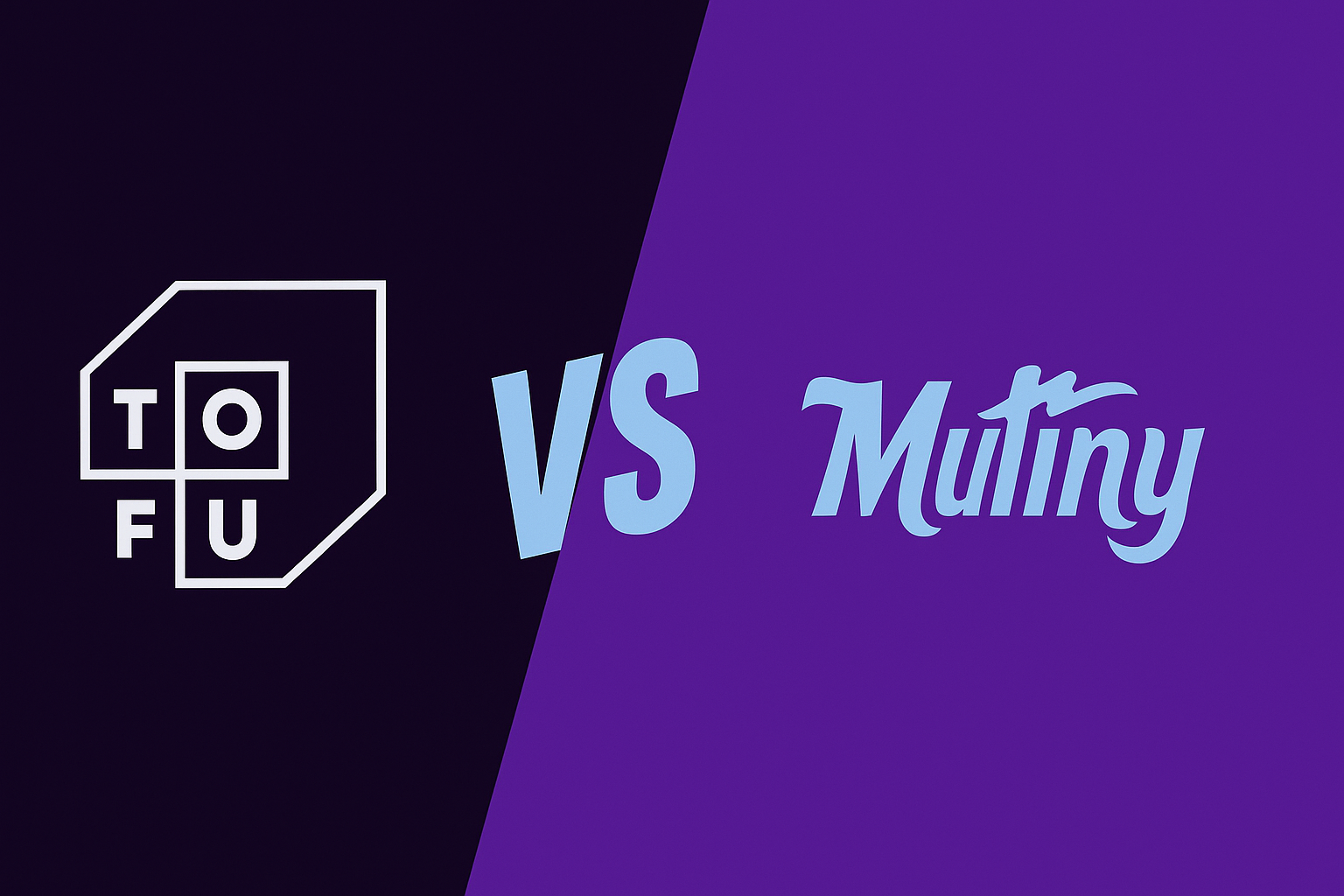
Tofu vs. Mutiny: Which is Best for ABM Campaigns?
Tofu vs Mutiny: Which ABM platform comes out on top? Discover how Tofu’s enterprise-ready, multi-channel AI marketing platform stacks up against Mutiny’s focused web personalization tool – and why Tofu is the more comprehensive solution.
.svg)
.png)
Tofu vs. UserLed: Which ABM Platform Should You Use?
Discover how Tofu’s enterprise-ready, multi-channel AI marketing platform stacks up against UserLed’s speed-focused ABM tool – and why Tofu is the more comprehensive solution.
.svg)

Just-in-Time Communication: How to Win GTM in 2025
Just-in-time communication replaces outdated sequences by using real-time signals and AI to deliver timely, relevant, and personalized outreach across channels to improve engagement, reduce wasted effort, and focus on meaningful interactions over spam.
.svg)
Want to give tofu A try?
Request a custom demo to see how Tofu can supercharge your GTM efforts.
ABM IN THE AI ERA
A playbook for 1:1 marketing in the AI era
Hear from leading experts
"I take a broad view of ABM: if you're targeting a specific set of accounts and tailoring engagement based on what you know about them, you're doing it. But most teams are stuck in the old loop: Sales hands Marketing a list, Marketing runs ads, and any response is treated as intent."

"ABM has always been just good marketing. It starts with clarity on your ICP and ends with driving revenue. But the way we get from A to B has changed dramatically."
.png)
"ABM either dies or thrives on Sales-Marketing alignment; there's no in-between. When Marketing runs plays on specific accounts or contacts and Sales isn't doing complementary outreach, the whole thing falls short."

"In our research at 6sense, few marketers view ABM as critical to hitting revenue goals this year. But that's not because ABM doesn't work; it's because most teams haven't implemented it well."
.png)
"To me, ABM isn't a campaign; it's a go-to-market operating model. It starts with cross-functional planning: mapping revenue targets, territories, and board priorities."

"With AI, we can personalize not just by account, but by segment, by buying group, and even by individual. That level of precision just wasn't possible a few years ago."
%201%20(1).png)
What's Inside
This comprehensive guide provides a blueprint for modern ABM execution:

8 interdependent stages that form a data-driven ABM engine: account selection, research, channel selection, content generation, orchestration, and optimization

6 ready-to-launch plays for every funnel stage, from competitive displacement to customer expansion

Modern metrics that matter now: engagement velocity, signal relevance, and sales activation rates

Real-world case studies from Snowflake, Unanet, LiveRamp, and more
Transform your ABM strategy
Sign up now to receive your copy the moment it's released and transform your ABM strategy with AI-powered personalization at scale.
Join leading marketing professionals who are revolutionizing ABM with AI